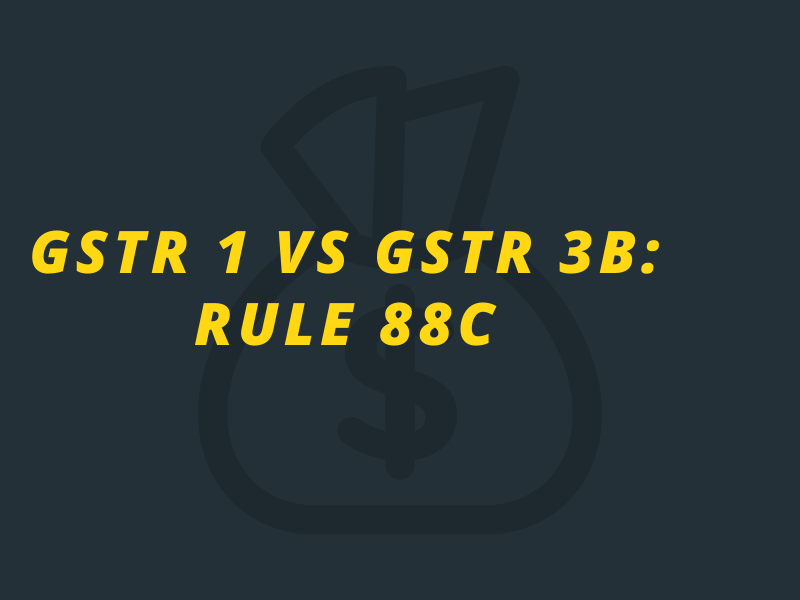Rule 88C : Difference in liability GSTR 1 vs GSTR 3B
Communication to Taxpayer
New rule 88C has been introduced vide notification no. 26/2022 dated 26th December 2022 under the provision of CGST Rules which provides the manner of dealing with the differences in amount of liability as reported in form GSTR 1 and the amount of liability reported in form GSTR 3B. Rule 88C will be applicable in cases where the amount of liability in form GSTR 1 exceeds the amount of liability as reported in form GSTR 3B by such amount or such percentage as may be recommended by the GST council. Such difference in liability shall be intimated to the registered person in part A of the form A DRC-01B within a period of seven days. Intimation shall be communicated on a common portal and on the registered email id of such registered person.
Response to the Communication
In response to the notice in part A of the form DRC -01B, the registered person shall pay the differential amount of tax along with interest. Further, he is also required to furnish a reply electronically on the common portal, incorporating reasons in respect of that part of the differential tax liability that has remained unpaid, if any, in Part B of FORM GST DRC-01B.
Action by the Proper Officer
In case no explanation is provided or the explanation provided is not acceptable to the proper officer, then in such case he can proceed for recovery of such differential tax by invoking provisions of Section 79 of the CGST Act.
Other Consequences
Provisions of rule 59 are also amended to provide that the registered person shall not be allowed to file form GSTR 1 unless he pays the tax along with interest as per form DRC-01B or he submits the reply to the intimation in part B of form DRC 01B.
AASK Legal Comments:
Provisions of Rule 88C would be helpful in regulating the non-compliant taxpayer. However, such rule provides the immense power to the proper officer to proceed for recovery of tax u/s 79 of the CGST Act. Further, there lacks clarity regarding the fact that whether the proper officer is required to pass an order under Section 73 or Section 74 of the CGST Act, before initiating recovery proceedings under Section 79 of the CGST Act. In absence of any order, the only remedy that would be available to the assessee is to file a writ petition before High Court to get relief, in case he disputes the tax liability. It is expected that the government should come up with some guidelines in regards to the manner in which such powers shall be exercised by the proper officer.
Article written by CA. Ankit Karanpuria – feedback if any can be send to ankit.karanpuria@aasklegal.com
Disclaimer:
The information provided in this update is intended for informational purposes only and does not constitute legal opinion or advice. Readers are requested to seek formal legal advice prior to acting upon any of the information provided herein. This update is not intended to address the circumstances of any particular individual or corporate body. There can be no assurance that the judicial/ quasi judicial authorities may not take a position contrary to the views mentioned hereinrra quis.
click herein below to download the notification
